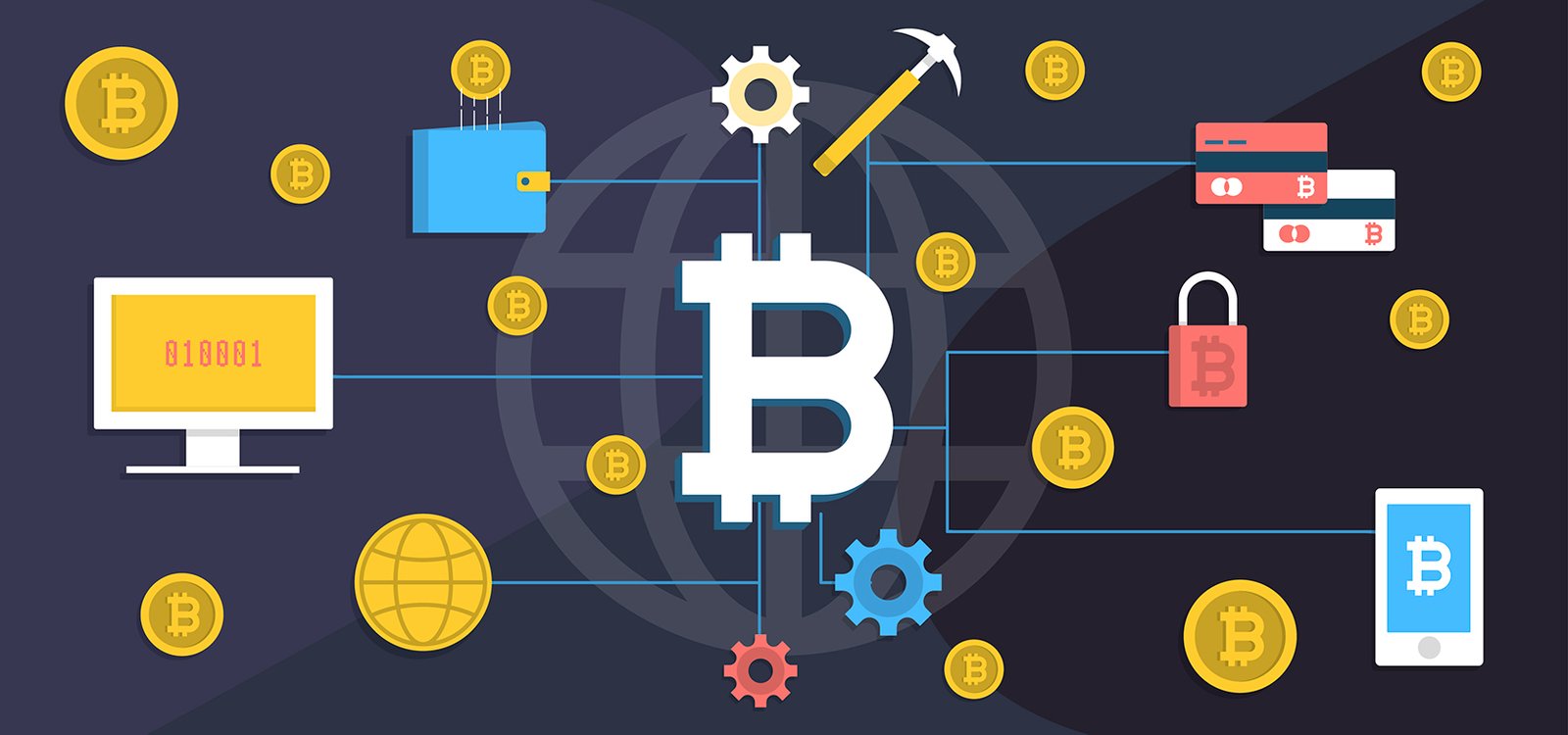By 2026, the story of Bitcoin and Ethereum will be written at the intersection of technology, macroeconomics, and regulation. Bitcoin remains the benchmark for digital scarcity, while Ethereum is the programmable substrate for a new wave of internet-native finance and applications. Both networks are maturing quickly, drawing in institutions, developers, and everyday users at a scale that would have sounded ambitious only a few years ago. This article assembles a comprehensive, human-readable forecast for 2026—grounded in historical cycles, adoption curves, and plausible scenarios—so you can understand where momentum is likely to build, where risks cluster, and how the pieces may fit together.
As we explore Bitcoin and Ethereum in 2026, we’ll unpack catalysts such as the late-cycle effects of the 2024 Bitcoin halving, the impact of institutional adoption, the expanding role of Layer-2 scaling, and the growing importance of regulatory clarity. We’ll also examine potential price ranges, the health of on-chain metrics, and the competitive dynamics shaping the broader cryptocurrency market. While no prediction is destiny, a clear framework can help you read the market with more confidence and nuance.
The macro backdrop: Why 2026 is different
From tightening to normalization
Crypto prices have historically responded to global liquidity conditions. If 2022–2023 reflected tightening financial conditions, 2024–2025 represented gradual stabilization. By 2026, markets are likely contending with normalized rates, a clearer inflation path, and an investment environment that favors risk-on rotations during growth upcycles. In such a setting, Bitcoin’s scarcity narrative and Ethereum’s utility narrative can both flourish, albeit through different channels.
Given Bitcoin’s fixed supply and predictable issuance schedule, the asset historically finds tailwinds whenever real yields ease or risk appetite returns. Ethereum, by contrast, is tied to activity: the more people build, trade, borrow, lend, and create on top of it, the more demand accrues to its blockspace. In simple terms, macro normalization can support both the store-of-value case and the smart-contract platform case—just in different ways.
Institutional flows and product maturity
By 2026, we expect continued growth in institutional adoption: more diversified crypto products on brokerage platforms, deeper derivatives markets, and improved custody solutions. This maturation lowers friction for pensions, endowments, and corporates to gain exposure. Institutions tend to start with Bitcoin due to its simplicity and liquidity, then branch into Ethereum for exposure to DeFi, tokenization, and Web3 applications. This staged entry can drive sequential demand, supporting sustained liquidity across both assets.
Bitcoin in 2026: Scarcity, security, and the march of inevitability

Post-halving dynamics and supply-side tightness
The 2024 halving compressed new supply issuance. By 2026, the market will have digested two years of post-halving flow dynamics. Historically, this period aligns with renewed interest and a grind toward higher market caps as new marginal buyers compete for fewer incoming coins. If energy costs stabilize and hash rate continues its secular climb, network security remains robust while miner economics tighten, creating a supply environment where spot demand can move price more efficiently.
Demand drivers you shouldn’t ignore
Brand strength matters. Bitcoin’s memetic simplicity—“21 million,” “digital gold”—continues to resonate. Corporate treasuries seeking a non-correlated reserve asset, retail buyers seeking an inflation hedge, and wealth managers seeking diversification form a durable demand base. Across exchanges and custodians, easier fiat on-ramps, clearer tax guidelines, and better reporting tools may broaden the investor funnel. Meanwhile, the potential expansion in stablecoins and CBDCs could normalize digital money usage, indirectly validating Bitcoin as the apex non-sovereign alternative.
Price framework: Bands rather than bullseyes
Forecasting a single number invites hubris, so here’s a framework. Imagine three bands for 2026:
-
A conservative band where Bitcoin consolidates below prior cycle extremes, reflecting macro shocks or regulatory frictions that cap flows.
-
A base-case band where adoption progresses, liquidity deepens, and the asset revisits or surpasses cycle highs on gradually improving participation.
-
An upside band where a virtuous loop of institutional inflows, corporate balance-sheet buys, and global demand squeezes a thinner post-halving supply.
In every case, volatility remains intrinsic. Bitcoin’s path often meanders even when the destination looks higher. Position sizing and time horizons matter, because sudden drawdowns are part of the asset’s character.
Ethereum in 2026: The programmable economy matures
The scaling stack becomes standard
If 2020–2021 established Ethereum’s value proposition, then 2024–2025 saw the standardization of Layer-2 scaling, rollups, and data availability upgrades that lowered gas fees and expanded throughput. By 2026, the user experience should be meaningfully better: cheaper transactions, faster confirmations, and wallets that abstract away network complexity. As a result, more of DeFi, NFTs, gaming, social, and enterprise experiments should live on L2s that settle to Ethereum for security.
These upgrades don’t just improve convenience; they impact network economics. The combination of EIP-1559 style fee burns and steady ETH staking can create a supply-demand balance supportive of price—especially when usage rises. A more efficient EVM environment encourages developers to ship, which in turn attracts capital and users in a reinforcing loop.
Tokenization and real-world assets
One of the most compelling 2026 narratives is the tokenization of real-world assets—equities, bonds, funds, invoices, and real estate paper—issued and traded on Ethereum L2s with institutional-grade compliance rails. If custody, identity, and KYC tooling continue to mature, expect large asset managers and fintechs to leverage Ethereum’s settlement layer for programmable, composable products. This shift can draw traditional capital into a smart-contracts ecosystem where yield, liquidity, and transparency improve.
Price framework: Utility meets reflexivity
Ethereum’s price in 2026 will likely reflect the interplay of usage, burn dynamics, and staking. When activity climbs, base fees rise and more ETH is burned; when staking penetration grows, the float available for trading can shrink. Together, these forces can create reflexive cycles where adoption begets scarcity. A thoughtful framework uses three bands similar to Bitcoin’s, but ties the base case more explicitly to on-chain activity: more transactions, more users, higher fees, and greater net burn can translate to a sturdier floor and more robust rallies.
Bitcoin vs. Ethereum: Different assets, complementary roles

Store of value and programmable value
Comparing Bitcoin and Ethereum as if they’re interchangeable misses the point. Bitcoin is engineered to be minimally mutable and maximally predictable—a pristine collateral and store-of-value asset with a simple, audited issuance. Ethereum is engineered for flexibility, enabling DeFi, identity, marketplaces, NFTs, and tokenization via smart contracts. Portfolios can benefit from both: Bitcoin as a hedge against monetary debasement and systemic tail risks; Ethereum as a levered bet on the growth of on-chain economies.
Correlation, diversification, and cycles
Historically, the assets have been positively correlated during broad crypto risk-on phases, yet their on-chain metrics and adoption drivers diverge. Correlation can break during idiosyncratic events—protocol upgrades, governance debates, or regulatory headlines specific to one asset. That means diversification within crypto isn’t an oxymoron. A blended thesis—scarcity plus utility—can smooth the ride while keeping upside exposure to network effects.
Catalysts to watch in 2026
Regulatory clarity and international coordination
Clearer regulatory clarity is a force multiplier. Jurisdictions that define token categories, disclosures, and market integrity standards can attract talent and capital. By 2026, we anticipate more harmonized frameworks for exchange licensing, stablecoin issuance, and disclosures for tokenized assets. Bitcoin benefits from legal classification as a commodity-like asset; Ethereum benefits when frameworks for DeFi and Layer-2 ecosystems are well-defined. Consistent rules lower perceived risk premiums and draw institutional allocators off the sidelines.
Enterprise-grade wallet and identity infrastructure
Better wallets and identity rails reduce friction. Expect expanded support for passkeys, account abstraction, and recovery mechanisms that let users operate without seed-phrase anxiety. A 2026 wallet may route your transaction to the cheapest L2, batch approvals safely, and sign with human-readable prompts—bringing Web2 polish to Web3 interactions. When friction drops, adoption rises, and fees accrue to Ethereum’s settlement layer, with knock-on benefits to both ETH and BTC via overall market growth.
The stablecoin and payments bridge
Dollar-denominated stablecoins are the connective tissue between the fiat world and on-chain value exchange. In 2026, more merchants, fintechs, and payroll platforms may integrate stablecoin rails for instant settlement and lower fees. This makes crypto useful even for non-speculative users. As stablecoin float grows, it deepens crypto liquidity, supports DeFi money markets, and normalizes on-chain commerce—positive second-order effects for Ethereum activity and Bitcoin’s role as apex collateral.
Risk map: What could go wrong
Macro downside and liquidity shocks
A negative growth shock, a credit event, or resurgent inflation could drain risk appetite globally. In such scenarios, Bitcoin and Ethereum can both sell off, even if their long-term theses remain intact. Crypto markets are still reflexive and sentiment-driven, so risk management remains essential.
Adverse regulation and fragmented rules
Patchwork or adversarial regulation can push liquidity offshore, hamper compliant on-ramps, and discourage enterprise adoption. While some jurisdictions may lead with constructive frameworks, inconsistency across major markets could slow institutional inflows and developer momentum.
Technical, security, or UX failures
Despite progress, crypto still faces MEV externalities, bridge risks, and smart-contract exploits. A major exploit or high-profile L2 failure could dent confidence and suppress activity. Likewise, if the UX gap persists—confusing fees, opaque errors, recovery challenges—mainstream adoption can lag expectations.
A data-driven look at 2026: What healthy markets might exhibit
For Bitcoin: supply trends and network health
In a constructive 2026, we would expect to see increasing hash rate, steady growth in long-term holder supply, and declining exchange balances as coins move to cold storage or custodial solutions for institutions. Transaction volumes that trend sideways to up, along with a resilient fee market during busy periods, would indicate robust utilization. Durable demand from corporate treasuries and wealth platforms would likely coincide with deepening derivatives liquidity, narrowing spreads, and healthier basis dynamics.
For Ethereum: usage, fees, and burn
On Ethereum, a healthy 2026 would exhibit growing L2 transactions, lower median gas fees on L2s with occasional L1 spikes during peak demand, and consistent fee burn offsetting or exceeding issuance. Rising unique addresses interacting with applications, increased ETH staking participation with liquid staking derivatives, and diversified application categories—DeFi, gaming, identity, NFTs—would suggest durable growth. If tokenization volumes rise and enterprise chains settle back to Ethereum, that’s a signal of the network’s gravitational pull.
See More: Ethereum Price Test Whales Stir Market Sentiment
Price outlook 2026: Framing realistic ranges
Bitcoin: plausible scenarios
A cautious yet constructive base case envisions Bitcoin maintaining a market structure characterized by higher lows versus prior cycles. In this scenario, institutional allocations broaden, exchange-traded vehicles deepen liquidity, and macro conditions are not hostile. Upside scenarios revolve around a flywheel of inflows and scarcity, while downside scenarios revolve around regulatory or macro shocks that suppress risk appetite. The lesson is to think in scenarios and time horizons, not point estimates.
Ethereum: utility-anchored appreciation
For Ethereum, the base case aligns with activity-led appreciation. As L2s absorb mainstream traffic, the settlement layer gains revenue, the burn remains material, and the narrative of programmable money deepens. Upside scenarios involve significant expansion in real-world asset issuance, mainstream consumer apps, and cross-border payments. Downside scenarios involve technical setbacks, competitive L1/L2 pressure, or weak app demand that keeps fees and burn soft.
How builders and investors can prepare
For builders: focus on production-grade UX
The fastest way to onboard the next 100 million users is to make crypto feel invisible. Prioritize account abstraction, social recovery, fiat on-ramps, and guardrails that prevent common signing mistakes. Build around Layer-2 scaling to keep costs predictable, and consider modular architectures that let you swap components as infrastructure improves. If your app survives fee spikes, abstracts chains, and speaks the language of non-crypto users, you’re positioned for the 2026 market.
For investors: thesis > ticker
A robust 2026 approach emphasizes thesis-driven allocation. For Bitcoin, the thesis is digital scarcity with global liquidity. For Ethereum, the thesis is smart-contracts and networked cash flows from usage. Map your conviction, risk tolerance, and time horizon to position sizing. Use on-chain analytics to monitor exchange balances, L2 throughput, burn rates, and staking participation as health indicators. Diversification across the cryptocurrency market remains sensible, but avoid over-optimization; clarity beats complexity.
Competitive pressure and the multichain reality
Ethereum’s moat and challengers
Competitors will continue to chase Ethereum’s developer mindshare with promises of higher throughput or cheaper fees. But moats don’t hinge solely on transactions per second. They form around tooling, standards, liquidity, and culture. Ethereum’s EVM compatibility, battle-tested tooling, and massive developer ecosystem remain meaningful. That said, multichain is the pragmatic reality. Bridges, intent-based routing, and shared security models will knit ecosystems together, with Ethereum positioned as the settlement nucleus if it continues to lead in security and composability.
Bitcoin’s expanding utility without compromising core design
Bitcoin’s design resists change for a reason: it protects the asset’s monetary premium. Yet utility layers such as Lightning and sidechains can add throughput for payments and new use cases while preserving base-layer conservatism. In 2026, expect continued experimentation in ways that extend Bitcoin’s reach—without diluting its core value proposition of immutable, scarce collateral.
Ethical and environmental considerations
Energy narratives and mining innovation
Bitcoin mining’s energy footprint will remain a talking point. The nuance: miners are increasingly incentivized to seek stranded, renewable, or off-peak energy to improve margins. Flexible load profiles can even help balance grids. As reporting improves and miners compete on sustainability metrics, the narrative can shift from burden to opportunistic co-location with clean energy.
Ethereum’s proof-of-stake maturation
Since its transition to proof-of-stake, Ethereum’s energy profile dropped dramatically, making it more legible to ESG-conscious institutions. By 2026, staking frameworks, slashing insurance, and enterprise-grade validators should be mainstream, lowering operational risk and enabling more participants to secure the network.
Education and consumer protection: The bridge to mainstream
Clarity breeds confidence
The biggest unlock for mainstream adoption is confidence. Clear disclosures, safer default wallet settings, sensible KYC flows for DeFi interfaces, and audit-first culture can save users from avoidable losses. In 2026, winning applications will use plain language, set expectations about risk, and emphasize user rights and recovery. When people understand what they’re signing and how they can recover, they’re likelier to stay.
Conclusion
Bitcoin and Ethereum arrive in 2026 as complementary pillars of a digitizing financial system. Bitcoin’s strength is elegant scarcity and global liquidity; Ethereum’s is the programmable economy built atop a secure, scalable settlement layer. With improving regulatory clarity, expanding institutional adoption, and significant progress in Layer-2 scaling, both assets have realistic paths to deeper market integration and higher valuations—tempered by the ever-present risks of macro shocks, policy shifts, and technical failures. For long-term participants, success in 2026 will come from understanding what each asset truly is, watching the right on-chain metrics, and aligning strategy with thesis and time horizon. None of this is financial advice, but a framework for thinking clearly in a market that rewards clarity.
FAQs
Q: Is Bitcoin still the best hedge against inflation in 2026?
Bitcoin’s finite supply and global liquidity preserve its hedge narrative, particularly over multi-year horizons. Short-term moves can still correlate with risk assets during liquidity shocks, but the long-run case for digital scarcity remains intact as adoption broadens and issuance declines post-halving. For many allocators, Bitcoin functions as a non-sovereign store of value within a diversified portfolio.
Q: What gives Ethereum an edge over other smart-contract platforms?
Ethereum’s edge is network effects: the largest developer base, mature tooling, deep liquidity, and standardized primitives. With Layer-2 scaling and account abstraction, user experience keeps improving. Competitors may post higher raw throughput, but Ethereum’s composability and security—plus the gravitational pull of its EVM ecosystem—remain difficult to replicate.
Q: How important are stablecoins to Bitcoin and Ethereum’s outlook?
Extremely. Stablecoins provide the bridge from fiat to crypto, enabling instant settlement and powering DeFi markets. As their usage expands in commerce and remittances, on-chain liquidity deepens, benefiting Ethereum activity and indirectly supporting Bitcoin via broader market participation and liquidity depth across exchanges.
Q: What on-chain metrics should I watch in 2026?
For Bitcoin, keep an eye on hash rate, exchange balances, and long-term holder trends. For Ethereum, track L2 transaction counts, gas fees, fee burn versus issuance, ETH staking participation, and active addresses. These signals help assess whether adoption and network health are trending in a supportive direction.
Q: Will regulation help or hurt crypto by 2026?
Clear rules tend to help by reducing uncertainty and encouraging institutional adoption. Jurisdictions that implement sensible market integrity standards, disclosures, and stablecoin frameworks are likely to attract builders and capital. Fragmented or punitive approaches can dampen innovation, but the global competitive landscape often rewards regulatory clarity with increased economic activity.






















